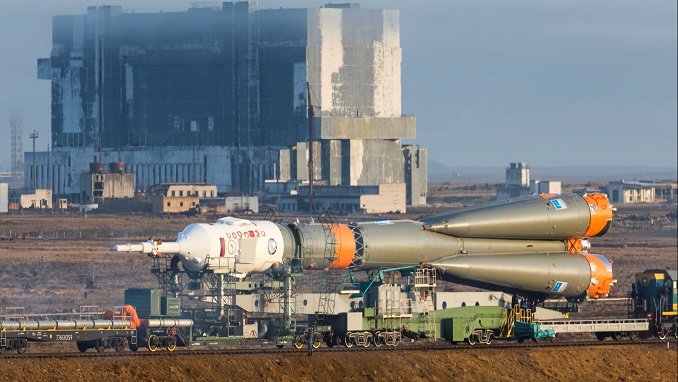The property of the Center for the Operation of Ground-Based Space Infrastructure (TsENKI), Russia’s main operator of spacecraft launching sites in Baikonur, in the Central Asian nation’s southern region of Qyzylorda, was impounded on Monday by Kazakh authorities.
Russia has continued to use the Baikonur space complex after the collapse of the Soviet Union in 1991, leasing the site from Kazakhstan since 1994, when it established TsENKI under the Russian Space Agency in accordance with Kazakhstan- Russia agreement on the principles and conditions for using the Baikonur cosmodrome.
The Moscow Times noted that the formal reason for the impounding was a debt of around 2 billion rubles ($29.7 million) that TsENKI needs to pay to the Baiterek Kazakh-Russian joint venture.
The debt, per the Russian outlet, arose as a result of work related to estimating ecological damage caused by Souyz-5 rockets i.e. the rocket’s EIA (environmental impact assessment).
Created in 2005, Baiterek’s goal was to abolish Proton rockets that use highly toxic heptyl fuel while securing the gradual move of launches to ecologically safe rockets.
As of March 14, Kazakhstan’s bailiff service ordered the entity’s leader to remain in Kazakhstan and banned TsENKI from transferring its assets and property out of the country.
This order comes in light of the chief of Russia’s Roskosmos space agency, Yury Borisov’s recent public criticism of Kazakh Communications Minister Baghdat Musin for postponing the construction of a new spacecraft launch area at Baikonur.
Commenting on Kazakhstan’s move to impound the space company’s property, Musin noted that the decision is under the jurisdiction of the Astana International Financial Centre (AIFC).
According to Musin, who previously called Borisov’s criticism a diplomatic miscalculation, the decision to impound the property does not apply to the entire Baikonur complex, but only to TsENKI.
The current situation, according to KZ24 sources, may affect the cooperation between Russia and Kazakhstan which was already affected by the sanctions imposed against the Russian space industry for the war in Ukraine.
It is possible that Astana may no longer be interested in the joint Baiterek project if the ability of Kazakhstan to use Russian missiles for commercial launches is questionable, as the Kazakh media speculated.



